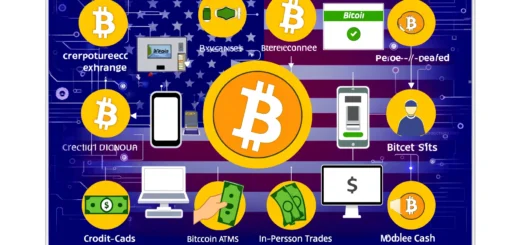What is Blockchain? Definition and Explanation
Blockchain, a revolutionary technology, offers a multitude of potential applications that could transform many sectors. At its core, blockchain is a decentralized and transparent ledger that allows for secure storage and verification of transactions. Due to its decentralized nature, blockchain eliminates the need for intermediaries and offers unprecedented transparency. Sectors such as finance, logistics, healthcare, and even governments are actively exploring blockchain applications. In this article, we will explore the definition of blockchain, its key advantages, and the multiple applications that could shape our future.
What is Blockchain Technology? Definition
By definition, blockchain is a revolutionary technology based on a decentralized and transparent digital ledger. Unlike traditional centralized databases, blockchain operates in a distributed manner, where each network participant has a copy of all transactions made. This technology offers an unprecedented level of security and trust, thanks to advanced cryptography and consensual transaction verification. Blockchain is often associated with cryptocurrency, notably Bitcoin, which was the first successful application of this technology. However, its potential extends far beyond financial boundaries. It can be used to record and verify transactions in domains such as logistics, real estate, healthcare, smart contracts, and even democratic governance.
The advantages of blockchain are numerous. It guarantees the immutability of data, meaning that once a transaction is recorded, it is virtually impossible to modify or delete it. Additionally, decentralization eliminates the need for a trusted third party, reducing costs and delays. Finally, the inherent transparency of blockchain allows all participants to access the complete transaction history, enhancing trust and traceability. Blockchain is, therefore, a promising technology with profound implications in many sectors. Its potential is immense and continues to inspire unprecedented innovations in the modern digital world.
What is a Blockchain?
A blockchain relies on a decentralized system where information is recorded in interconnected blocks, forming a continuous chain. Each block contains a set of data, such as transactions or records, along with a unique identifier called a “hash.” The hash of a block is calculated based on the data it contains and the hash of the previous block in the chain, creating a cryptographic link between the blocks. This feature makes the blockchain immutable, as altering one block would require modifying the entire chain, which is practically impossible. Blockchain security is further enhanced by a process called “consensus,” where network participants validate and verify transactions. This ensures that data recorded in the blockchain is reliable and cannot be altered without majority consensus. A blockchain is a decentralized, transparent, and secure ledger that records information immutably. Its unique characteristics offer immense potential to revolutionize various sectors, from finance to logistics and healthcare.
Different Types of Blockchains
There are several types of blockchains, differing primarily in their structure and architecture. Here are some main types of blockchains:
- Public Blockchain: Also known as “open blockchain,” it is open to everyone and allows anyone to join the network, participate in transaction validation, and access the entire chain. Bitcoin and Ethereum are examples of public blockchains.
- Private Blockchain: Unlike public blockchain, private blockchain is restricted to a specific group of authorized actors. It is generally used internally within an organization or consortium. Access and validation rights are controlled by authorized participants.
- Hybrid Blockchain: This type of blockchain combines elements of public and private blockchains. Some parts of the chain are open to the public, while others are reserved for authorized actors, balancing transparency and confidentiality as needed.
- Consortium Blockchain: Also known as federated blockchain, it is managed by a consortium of organizations rather than a single entity. Consortium members participate in transaction validation and blockchain management, making it a shared governance model.
- Permissioned Blockchain: In a permissioned blockchain, participants must obtain authorization to join the network and participate in transaction validation. This type of blockchain is often used in enterprise environments where confidentiality and control are essential.
- Permissionless Blockchain: Conversely, a permissionless blockchain allows anyone to join the network and participate in transaction validation without prior authorization. This allows for greater openness and decentralization but can pose challenges in terms of security and governance.
Possible Applications of Blockchain Technology
Blockchain offers a wide range of potential applications in various fields. Here are some examples:
- Cryptocurrencies and Payments: Blockchain became popular through cryptocurrencies like Bitcoin, enabling secure, fast, and low-cost financial transactions without intermediaries.
- Smart Contracts: Blockchain enables the automatic execution of smart contracts, programmable agreements that self-execute when predefined conditions are met. They can be used in various fields, such as insurance, logistics, or real estate.
- Supply Chain Management: The transparency and immutability of blockchain make it a powerful tool for tracking and verifying supply chain steps, ensuring product authenticity and traceability.
- Voting and Governance: Blockchain can enhance the transparency and security of voting systems, ensuring election integrity. It can also be used for decentralized governance and community decision-making.
- Healthcare and Medical Records: Blockchain can facilitate the secure sharing of medical records between healthcare providers, ensuring data confidentiality and consistency.
- Renewable Energy: Blockchain can be used to track and verify the origin of renewable energy, allowing consumers to verify its source and promote environmental sustainability.
- Intellectual Property: Blockchain can be used to record and protect intellectual property rights, such as patents, trademarks, and copyrights, providing proof of existence and precedence.
- Loyalty and Rewards Programs: Blockchain can create transparent and interoperable loyalty programs, allowing users to easily track and exchange their rewards.
- Insurance: Blockchain can streamline the underwriting, claims, and settlement processes of insurance policies, reducing fraud and administrative costs.
- Identity and Verification: Blockchain can create secure digital identification systems, enabling users to control their identity data and simplify verification processes.
Advantages of Blockchain
As we have seen in our definition, blockchain offers numerous advantages and promises to revolutionize different sectors, such as cryptocurrencies. The various advantages of blockchain include:
Enhanced Security
Blockchain offers enhanced security through its decentralized architecture and the use of advanced cryptography. Data recorded on the blockchain is protected against tampering and malicious attacks, ensuring information integrity.
Transparency and Traceability
The inherent transparency of blockchain allows all participants to access the complete transaction history. This fosters trust by providing total visibility over exchanges, which is particularly useful in supply chain management, finance, and asset management.
Reduced Costs and Intermediaries
Blockchain eliminates the need for third-party intermediaries, such as financial institutions or notaries, reducing transaction costs and delays. By automating processes and eliminating additional fees, blockchain can offer significant savings in many sectors.
Data Immutability
Once a transaction is recorded on the blockchain, it becomes immutable and cannot be altered without network consensus. This guarantees the integrity and reliability of recorded data, providing incontrovertible proof of past events.
Elimination of Single Points of Failure
Due to its decentralized nature, blockchain eliminates single points of failure. Data is distributed across the entire network, making the system more resilient to hardware failures, cyber attacks, and human errors.
How to Invest in Blockchain?
Investing in blockchain can be done in several ways. Here are some options to consider:
Cryptocurrencies
Direct investment in popular cryptocurrencies like Bitcoin, Ethereum, or other altcoins is one possibility. You can buy these digital assets on cryptocurrency exchange platforms (OKX or Bitget) and store them in a secure digital wallet.
Blockchain-Related Company Stocks
You can invest in publicly traded companies developing blockchain-based technologies. Research companies specializing in blockchain, financial services, logistics, or other sectors that could benefit from this technology.
Blockchain Investment Funds
There are investment funds specializing in blockchain that allow investors to access a diversified portfolio of companies operating in the blockchain field. You can study these funds and invest in those that match your investment goals. For this, it may be beneficial to go through a broker offering such products, like eToro.
Initial Coin Offerings (ICOs)
ICOs are fundraising events where companies issue their own cryptocurrencies or tokens. If you’re willing to take higher risks, you can participate in promising ICOs by thoroughly researching the projects and assessing their potential.
Conclusion
Blockchain technology represents considerable potential for multiple domains, ranging from financial transactions to supply chain traceability and decentralized governance. The key advantages of blockchain, such as enhanced security, transparency, and cost reduction, attract the attention of many market players. If you want to invest in blockchain, several options are available. Cryptocurrency exchange platforms like OKX and Bitget offer the ability to buy and trade digital assets, while online brokerage firms like eToro allow investing in blockchain investment funds.



